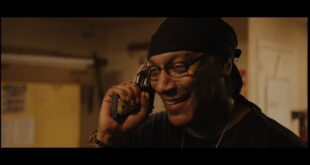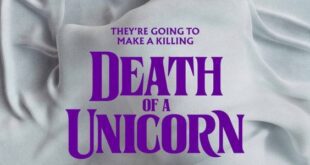The Grand Son is a new film by Robert Logevall (All God’s Children Can Dance) about the strange and insular relationship between a woman Judy (Lesley Ann Warren: The Limey) and her two grandchildren, Tod (Rhys Wakefield: The Purge) and Lani (Fabianne Therese: John Dies at the End). The trio live in a luxurious home high in the Hollywood Hills. The first image we see is of Tod shooting a bow and arrow in a wooded area with Judy coldly watching. It’s a strangely ominous scene.
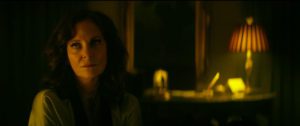
There is a very creepy sense of intimacy between Judy and Tod as shown in a scene where he places her feet in a foot bath that lasts a little bit too long for comfort. Tod and Lani live a spoiled, pampered existence, like two little pets, not caring for much of anything other than their own comfort. It is clear that they have never wanted for anything in the world. Then one day, Tod is fooling around with his grandmother’s gun while she is talking to him and accidentally discharges it, shooting her in the head.
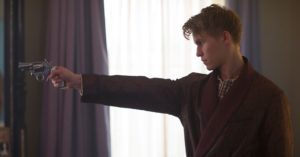
From that moment on, the relaxed tone of the film changes in one electrifying jolt. Tod becomes invigorated with a sense of purpose we haven’t seen up until this point. He impulsively decides to cover up her death, using his sister to take his grandmother’s place on her TV show, where, to his surprise, she flourishes. Tod is far from a master criminal, however, and always seems to teeter on the brink of being caught.

Our feelings toward Tod are very conflicted as we sympathize with him in some ways, but we also recognize that he is a selfish narcissist. Part of his problem is that he is dealing with a world and feelings that he has been sheltered from his entire life. He is making the world up as he goes along, and he’s making an ugly mess of it.
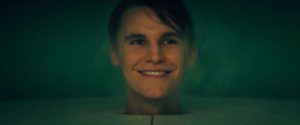
Much of the credit to the success of The Grand Son has to go the fantastic acting skill of Rhys Wakefield. He manages the delicate task of making Tod a strangely likeable character despite all his flaws. The lighting of the film helps set the quiet, depersonalized tone, as it’s shot in cold, sophisticated blues and reds. The pulsating music becomes its own character as it’s used on several occasions to replace dialogue. This is a cold, strangely unsettling film that will linger long after it has ended. It’s definitely a must see.
 PopHorror Let's Get Scared
PopHorror Let's Get Scared



